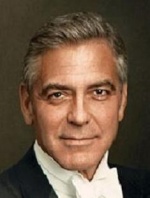Rejecting The George Clooney Defense, Supreme Court Upholds Protection Of Whistleblowers In The Private Sector.
4 posters
Page 1 of 1
 Rejecting The George Clooney Defense, Supreme Court Upholds Protection Of Whistleblowers In The Private Sector.
Rejecting The George Clooney Defense, Supreme Court Upholds Protection Of Whistleblowers In The Private Sector.
Just found this a bit interesting, move it if needed.
Rejecting The George Clooney Defense, Supreme Court Upholds Protection Of Whistleblowers In The Private Sector. What Does It Mean For Your Company?
Arnall Golden Gregory LLP
Jennifer L. Shelfer
Recently, the Supreme Court affirmed that many employees of private companies are entitled to protection against retaliation when they blow the whistle on misconduct just as much as employees of publicly-traded companies. Lawson v. FMR, LLC, 571 U.S. – (Mar. 4, 2014). Perhaps it was wishful thinking, but before this decision many believed that the Sarbanes-Oxley Act, which was passed in the wake of the Enron scandal, was limited to staving off fraud in the public sector. But two private employees, whose employers had contracted to advise and manage publicly-traded mutual funds, felt differently. After they reported potential fraud related to the mutual funds, they were retaliated against and lost their jobs. Aggrieved, the employees sued, seeking protection as whistleblowers under Sarbanes-Oxley.
The defendant-employers moved to dismiss the employees’ lawsuits, contending that the Sarbanes-Oxley Act’s whistleblower protections did not reach employees of private companies. Although the trial court rejected that contention, the employers’ argument got traction in the First Circuit Court of Appeal, where a divided court held that the Act only covered employees of public companies, not a private contractor’s employees. Shortly after the First Circuit rendered its decision, the Department of Labor’s Administrative Review Board issued a directly contrary opinion in an unrelated case, holding that employees of private contractors that render services to public companies are within the ambit of the whistleblower law. Faced with a conflict between the First Circuit Court of Appeal and the federal agency designated by Congress to interpret and enforce whistleblower protections, the Supreme Court granted certiorari to resolve the matter, and in a 6-3 decision, held that Congress afforded whistleblower protection to employees of private companies who provide services for public companies.
The Supreme Court started with the plain language of the statute, which, when stripped to plainer English states that: “No [public] company . . . or any officer, employee, contractor, subcontractor, or agent of such company, may . . . [retaliate against a whistleblower employee].” 18 U.S.C. § 1514A.
The Court held that the employer’s interpretation of the Act’s language was nonsensical on a number of levels. First, it required the Court to add words to the statute that Congress did not see fit to include when it drafted the provision, namely limiting language of “of a public company” after “employee.” Second, the employer’s interpretation would require a contractor to retaliate against a public company’s employee for the reference to “contractor” to have any meaning. But, outside contractors rarely, if ever, have the power to fire or demote another company’s employees.
That’s where the George Clooney defense comes in, which actually had some sway over Justice Sotomayor, who drafted the dissenting opinion. The employers conceded that contractors rarely have firing power over another company’s employees, but argued that when Congress drafted this provision, it must have been thinking of George Clooney, or at least the “corporate downsizer” position he later held in the 2009 film Up in the Air. That is, the employers argued that the use of “contractor” in the whistleblower statute must have been intended to close a loophole that would have allowed public companies to evade liability by hiring an outsider to come in and do its dirty work. But, when pressed to offer a non-fictionalized, real-world example of a situation in which an outside contractor would have employment decisionmaking authority over a public company’s employees, the defendant employers could think of none, and the Court declined to attribute such a constrained motive to Congress.
It was also notable to the Court that upon closer dissection of the Enron scandal, outside, contracting professionals, such as Enron’s outside accountants and lawyers, were directly complicit in Enron’s fraud. A handful of employees from outside of Enron who did speak up—from Merrill Lynch to Arthur Anderson—were swiftly dealt with, not by Enron, but by their private employers at Enron’s behest. When passing Sarbanes-Oxley’s whistleblower protections, Congress considered that such professionals normally have the best opportunity to witness investor fraud and to report it, and that, if protected, those whistleblowers could help prevent the next Enron or WorldCom.
The Court dismissed a few other technical arguments lobbed up by the employers, including the argument that the statute’s short-hand titles should control over the otherwise plain and involved language in the statute itself. Then, the employers threw their Hail Mary, arguing that if whistleblower protections were not limited just to employees of public companies, that the whistleblower protections of Sarbanes-Oxley would extend to every nanny, housekeeper, or gardener working for every CEO in America, and surely, Congress did not intend to give whistleblower protections to domestic employees. Again, the majority of the Court was not swayed. While it was possible that a housekeeper could sue for retaliation as a whistleblower under what was deemed an unintended loophole based on a drafting error, the Court believed the possibility that a domestic employee might uncover evidence of mail, wire, or investor fraud to be sufficiently remote. And, the Court invited Congress to fix its mistake.
The Lawson decision has received a fair amount of press since the opinion was handed down; after all, it is a rare Supreme Court decision that mentions George Clooney. But cutting through the headlines, what does the Lawson decision really mean for your company? It means that if you are a private employer and you contract with, provide services to, or serve as the agent of a publicly-traded company, you need to ensure that your employees are not retaliated against for blowing the whistle on fraud.
[You must be registered and logged in to see this link.]
Rejecting The George Clooney Defense, Supreme Court Upholds Protection Of Whistleblowers In The Private Sector. What Does It Mean For Your Company?
Arnall Golden Gregory LLP
Jennifer L. Shelfer
Recently, the Supreme Court affirmed that many employees of private companies are entitled to protection against retaliation when they blow the whistle on misconduct just as much as employees of publicly-traded companies. Lawson v. FMR, LLC, 571 U.S. – (Mar. 4, 2014). Perhaps it was wishful thinking, but before this decision many believed that the Sarbanes-Oxley Act, which was passed in the wake of the Enron scandal, was limited to staving off fraud in the public sector. But two private employees, whose employers had contracted to advise and manage publicly-traded mutual funds, felt differently. After they reported potential fraud related to the mutual funds, they were retaliated against and lost their jobs. Aggrieved, the employees sued, seeking protection as whistleblowers under Sarbanes-Oxley.
The defendant-employers moved to dismiss the employees’ lawsuits, contending that the Sarbanes-Oxley Act’s whistleblower protections did not reach employees of private companies. Although the trial court rejected that contention, the employers’ argument got traction in the First Circuit Court of Appeal, where a divided court held that the Act only covered employees of public companies, not a private contractor’s employees. Shortly after the First Circuit rendered its decision, the Department of Labor’s Administrative Review Board issued a directly contrary opinion in an unrelated case, holding that employees of private contractors that render services to public companies are within the ambit of the whistleblower law. Faced with a conflict between the First Circuit Court of Appeal and the federal agency designated by Congress to interpret and enforce whistleblower protections, the Supreme Court granted certiorari to resolve the matter, and in a 6-3 decision, held that Congress afforded whistleblower protection to employees of private companies who provide services for public companies.
The Supreme Court started with the plain language of the statute, which, when stripped to plainer English states that: “No [public] company . . . or any officer, employee, contractor, subcontractor, or agent of such company, may . . . [retaliate against a whistleblower employee].” 18 U.S.C. § 1514A.
The Court held that the employer’s interpretation of the Act’s language was nonsensical on a number of levels. First, it required the Court to add words to the statute that Congress did not see fit to include when it drafted the provision, namely limiting language of “of a public company” after “employee.” Second, the employer’s interpretation would require a contractor to retaliate against a public company’s employee for the reference to “contractor” to have any meaning. But, outside contractors rarely, if ever, have the power to fire or demote another company’s employees.
That’s where the George Clooney defense comes in, which actually had some sway over Justice Sotomayor, who drafted the dissenting opinion. The employers conceded that contractors rarely have firing power over another company’s employees, but argued that when Congress drafted this provision, it must have been thinking of George Clooney, or at least the “corporate downsizer” position he later held in the 2009 film Up in the Air. That is, the employers argued that the use of “contractor” in the whistleblower statute must have been intended to close a loophole that would have allowed public companies to evade liability by hiring an outsider to come in and do its dirty work. But, when pressed to offer a non-fictionalized, real-world example of a situation in which an outside contractor would have employment decisionmaking authority over a public company’s employees, the defendant employers could think of none, and the Court declined to attribute such a constrained motive to Congress.
It was also notable to the Court that upon closer dissection of the Enron scandal, outside, contracting professionals, such as Enron’s outside accountants and lawyers, were directly complicit in Enron’s fraud. A handful of employees from outside of Enron who did speak up—from Merrill Lynch to Arthur Anderson—were swiftly dealt with, not by Enron, but by their private employers at Enron’s behest. When passing Sarbanes-Oxley’s whistleblower protections, Congress considered that such professionals normally have the best opportunity to witness investor fraud and to report it, and that, if protected, those whistleblowers could help prevent the next Enron or WorldCom.
The Court dismissed a few other technical arguments lobbed up by the employers, including the argument that the statute’s short-hand titles should control over the otherwise plain and involved language in the statute itself. Then, the employers threw their Hail Mary, arguing that if whistleblower protections were not limited just to employees of public companies, that the whistleblower protections of Sarbanes-Oxley would extend to every nanny, housekeeper, or gardener working for every CEO in America, and surely, Congress did not intend to give whistleblower protections to domestic employees. Again, the majority of the Court was not swayed. While it was possible that a housekeeper could sue for retaliation as a whistleblower under what was deemed an unintended loophole based on a drafting error, the Court believed the possibility that a domestic employee might uncover evidence of mail, wire, or investor fraud to be sufficiently remote. And, the Court invited Congress to fix its mistake.
The Lawson decision has received a fair amount of press since the opinion was handed down; after all, it is a rare Supreme Court decision that mentions George Clooney. But cutting through the headlines, what does the Lawson decision really mean for your company? It means that if you are a private employer and you contract with, provide services to, or serve as the agent of a publicly-traded company, you need to ensure that your employees are not retaliated against for blowing the whistle on fraud.
[You must be registered and logged in to see this link.]

Mazy- Achieving total Clooney-dom
- Posts : 2883
Join date : 2012-11-03
 Re: Rejecting The George Clooney Defense, Supreme Court Upholds Protection Of Whistleblowers In The Private Sector.
Re: Rejecting The George Clooney Defense, Supreme Court Upholds Protection Of Whistleblowers In The Private Sector.
Interesting article, Mazy, tho I confess to reading the final summing up paragraph to get what was really going on.
Clooney, Sotomayor and Enron all in one article -
Alternative title - How to get an Otherwise Fairly Complicated Article Read by More People - add a little Clooney
How To Get a Complicated Article Read by putting Clooney in the headline
Clooney, Sotomayor and Enron all in one article -
Alternative title - How to get an Otherwise Fairly Complicated Article Read by More People - add a little Clooney
How To Get a Complicated Article Read by putting Clooney in the headline
party animal - not!- George Clooney fan forever!
- Posts : 12433
Join date : 2012-02-16
 Re: Rejecting The George Clooney Defense, Supreme Court Upholds Protection Of Whistleblowers In The Private Sector.
Re: Rejecting The George Clooney Defense, Supreme Court Upholds Protection Of Whistleblowers In The Private Sector.
Oh No! Wrong thread ........Aargh
party animal - not!- George Clooney fan forever!
- Posts : 12433
Join date : 2012-02-16
 Re: Rejecting The George Clooney Defense, Supreme Court Upholds Protection Of Whistleblowers In The Private Sector.
Re: Rejecting The George Clooney Defense, Supreme Court Upholds Protection Of Whistleblowers In The Private Sector.
Pan I moved your post from the Darfur thread here as I believe you wanted to post it here ...I hope  Let me know in case if was a different thread...
Let me know in case if was a different thread...

Nicky80- Casamigos with Mr Clooney
- Posts : 8561
Join date : 2013-05-01
Location : Germany
 Re: Rejecting The George Clooney Defense, Supreme Court Upholds Protection Of Whistleblowers In The Private Sector.
Re: Rejecting The George Clooney Defense, Supreme Court Upholds Protection Of Whistleblowers In The Private Sector.
You're right, Nicky. Thank you - again!
party animal - not!- George Clooney fan forever!
- Posts : 12433
Join date : 2012-02-16
 Re: Rejecting The George Clooney Defense, Supreme Court Upholds Protection Of Whistleblowers In The Private Sector.
Re: Rejecting The George Clooney Defense, Supreme Court Upholds Protection Of Whistleblowers In The Private Sector.
Interesting article.
I like the part that said, "the court invited Congress to fix its mistake."
See the court doesn't MAKE the laws, they interpret the letter of the law. It's up to Congress not to fuck up when they draft the laws in the first place.
Hopefully, they'll fix this loophole soon.
Geesh.
And yes, PAN put George's name in the title and it will get read. Cause they could have just as easily said, rejecting the Up in the Air defense.... but then who would read that? HA!
I like the part that said, "the court invited Congress to fix its mistake."
See the court doesn't MAKE the laws, they interpret the letter of the law. It's up to Congress not to fuck up when they draft the laws in the first place.
Hopefully, they'll fix this loophole soon.
Geesh.
And yes, PAN put George's name in the title and it will get read. Cause they could have just as easily said, rejecting the Up in the Air defense.... but then who would read that? HA!

LornaDoone- Moderator
- Posts : 6708
Join date : 2011-01-06
 Similar topics
Similar topics» George Clooney & Amal Clooney Have Dinner With Supreme Court Justice Sonia Sotomayor April 8 2015
» Supreme court over turns Roe Vs Wade
» Harrison Ford Still Regrets Rejecting Major Movie Role That Won George Clooney an Oscar
» German Supreme Court declares treatment of Yazidis by ISIS as genozide
» George Clooney mention in Royal Court Play
» Supreme court over turns Roe Vs Wade
» Harrison Ford Still Regrets Rejecting Major Movie Role That Won George Clooney an Oscar
» German Supreme Court declares treatment of Yazidis by ISIS as genozide
» George Clooney mention in Royal Court Play
Page 1 of 1
Permissions in this forum:
You cannot reply to topics in this forum




» Clooney Foundation exposure of happenings in next Olympic Host Nation
» 2024 Niv: Geoege & Amal in St. Tropez
» Chit Chat 2024
» Clooney voices pro-Harris ad
» 2024 What George watches on TV
» George sells his LA home
» Oct 2024 Clooney dinner Party
» My Wolfs review